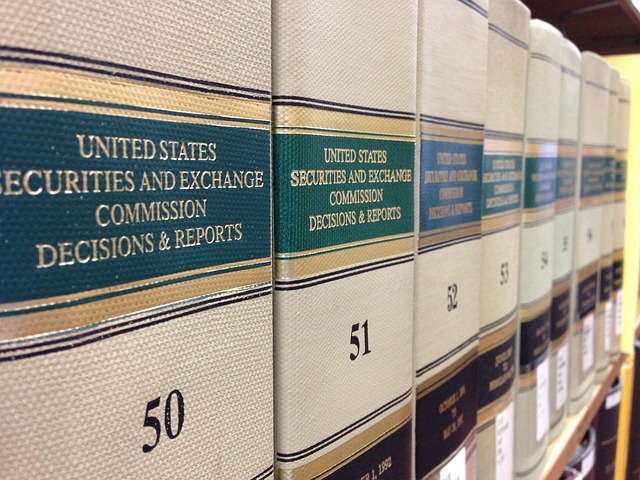RF Regulatory Agencies enforce RF standards and manage complaints, inspections, and penalties for non-compliance. Appealing a criminal sentence decision in such cases is complex, requiring legal expertise to navigate regulations and protect interests. Strategic navigation through legal territory is crucial for white-collar crimes, focusing on evidence review, procedural errors, and compelling arguments for verdict challenge. Businesses facing post-investigation consequences should understand their rights, review merits, and seek counsel to avoid indictment, minimize impact, ensure future compliance, and preserve reputation.
“RF Regulatory Agency Investigations: Navigating Compliance, Appeals, and Consequences
This comprehensive guide explores RF regulatory agency investigations, delving into their authority, non-compliance processes, and legal strategies for appealing criminal sentence decisions. From understanding the investigatory landscape to post-investigation remedies, this article equips readers with crucial knowledge. Learn how to navigate the complexities of RF regulations, including effective responses during investigations and strategic appeals, ensuring compliance and minimizing potential penalties.”
- Understanding RF Regulatory Agency Authority
- Investigating Non-Compliance: Processes & Grounds
- Appealing a Criminal Sentence Decision: Legal Strategies
- Navigating Post-Investigation Consequences & Remedies
Understanding RF Regulatory Agency Authority

RF Regulatory Agencies possess significant authority to oversee and enforce radio frequency (RF) technologies, ensuring compliance with strict regulations. Their role is pivotal in managing the complex landscape of RF emissions, from wireless communications to microwave applications. These agencies have the power to investigate complaints, conduct inspections, and impose penalties on non-compliant entities. One crucial aspect of their mandate is the ability to review and overturn decisions related to RF transmissions, especially when there’s a potential impact on public safety or regulatory standards.
Appealing a criminal sentence decision in such cases can be a complex process, requiring legal expertise. Many lawyers specialize in representing clients facing RF-related charges, offering winning challenging defense verdicts across the country. Their goal is to navigate the intricate regulations and present compelling arguments to protect their clients’ interests. This strategic approach ensures that justice is served while adhering to the stringent requirements set by RF Regulatory Agencies.
Investigating Non-Compliance: Processes & Grounds

When an RF Regulatory Agency suspects non-compliance with radio frequency (RF) regulations, they initiate investigations to ensure adherence to established standards. These probes are crucial in maintaining the integrity of RF communications and protecting public safety. The agency’s powers extend to examining equipment, records, and operations related to RF devices. Investigating non-compliance involves several processes, beginning with a thorough review of relevant laws and regulatory documents. Officials then gather evidence through inspections, interviews, and document production requests.
Grounds for investigation include reports of unauthorized transmissions, interference with other signals, or suspected equipment malfunctions. The agency may also target businesses based on patterns of non-compliance or those with a history of legal issues. During the inquiry, individuals and organizations have rights, including the ability to appeal any criminal sentence decisions through a structured legal process. A general criminal defense strategy can help ensure fairness and protect the interests of for his clients involved in RF regulatory matters, aiming potentially for a complete dismissal of all charges.
Appealing a Criminal Sentence Decision: Legal Strategies

When facing a criminal sentence decision, especially for white-collar and economic crimes, appealing the ruling is a critical step to consider. The process involves navigating a complex legal landscape, where strategic planning and robust representation are paramount. Legal strategies employed should focus on scrutinizing evidence, identifying procedural errors, and presenting compelling arguments that challenge the validity of the initial verdict.
For corporate and individual clients alike, an effective appeal strategy may involve gathering new evidence, reinterpreting existing data, or disputing the interpretation of laws and regulations. Aiming for a complete dismissal of all charges is a feasible goal if the appeal effectively highlights misapplication of legal principles or procedural flaws in the original investigation and prosecution.
Navigating Post-Investigation Consequences & Remedies

After an RF Regulatory Agency investigation concludes, the respective business faces a critical juncture where navigating post-investigation consequences and remedies is paramount. The agency’s findings can lead to significant penalties, including financial fines, equipment seizures, or even criminal charges for individuals involved. For businesses, understanding their rights and options becomes crucial. Appealing a criminal sentence decision is one of the key strategies in mitigating these consequences.
The process involves a thorough review of the investigation’s merits and legal grounds for objection. In cases involving white-collar defense, experienced legal counsel can help in preparing compelling arguments to challenge the agency’s conclusions. Avoiding indictment is often a primary goal, focusing on demonstrating compliance, cooperation, and a lack of malicious intent. Through strategic appeals and robust defenses, businesses can work towards minimizing impact, ensuring compliance for future operations, and preserving their reputation.
RF Regulatory Agencies play a vital role in ensuring compliance with radiation safety standards. Through thorough investigations, they identify non-compliance and, where necessary, enforce regulations through criminal sentence decisions. However, individuals facing such charges have legal strategies available to them when appealing these decisions. Understanding the processes involved in appeals is crucial to navigating post-investigation consequences and remedies, ultimately fostering a more just and effective regulatory environment.






